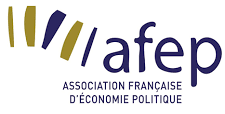APORDE
African Programme on Rethinking Development Economics
13 – 27 May 2010
Durban, South Africa
Supported by
the Department of Trade and Industry of South Africa (the dti)
and the French Development Agency (AFD)
with the French Institute of South Africa (IFAS)
We are pleased to announce that the 2010 African Programme on Rethinking
Development Economics (APORDE) will be held in Durban (South Africa)
from the 13th to the 27th of May. After three successful editions,
APORDE is a well established programme which attracts many quality
applicants. This call is directed at talented African, Asian and Latin
American economists, policy makers and civil society activists.
We encourage everyone with an interest in development to read and
distribute this call. Entry into this high-level programme will be very
competitive and only a small number of applicants will be selected.
APORDE is a joint initiative of the Department of Trade and Industry
(the dti), the French Development Agency (AFD) and the French Institute
of South Africa (IFAS). Lecturers teaching in the programme include
Alice Amsden (MIT), Thandika Mkandawire (LSE), Michel Aglietta (Institut
Universitaire de France), Ha-Joon Chang (University of Cambridge) and
Ben Fine (SOAS). Nicolas Pons-Vignon (CSID, Wits University) is the
APORDE Course director.
For more information, visit www.aporde.org.za
APORDE is being conducted in a climate when there is much
greater contestation of ideas around the possible options for economic
development and industrialisation than in many decades. An initiative
like APORDE can make a very important contribution in offering us new
insights and reflections on the critical questions of building a
developmental state and mounting a serious industrial policy.
Dr. Rob Davies, Minister of Trade and Industry
Background
While there has been an increased questioning of the neoliberal
domination in policy making, the supply of critical and constructive
responses remains poor. The situations in most developing countries are
particularly preoccupying, since governments and civil societies are
weakly equipped to respond critically to external initiatives aimed at
their development and to generate endogenous strategies. Due to, among
other things, resource constraints, researchers and students from
developing countries tend to rely on a small number of standard
textbooks and the publications from the multilateral financial
institutions, which severely restricts their exposure to alternative
approaches. Sub-Saharan Africa is probably most affected by the poor
availability of cutting-edge research and teaching in non-orthodox
economics. The influence of neoclassical economics in the continent has
precluded the exploration of more proactive state involvement to support
economic development and reduce poverty. The tide is, however, gradually
turning: the need for “more” (rather than merely “better”, which in
neoliberal terms has proved to mean “less”) state intervention in
economic affairs is increasingly recognised. Crucially, economic
take-off appears bound to remain a pipedream if it is premised on
unabated liberalisation rather than developmental trade and industrial
policies. The latter would represent a qualitative leap in the nature of
state intervention, which has often been limited to “creating favourable
conditions”.
The shortcomings of “populist”, or neopopulist, alternatives to the
neoliberal orthodoxy will also be discussed. These alternatives, which
tend to focus on specific issues, for instance the environment or
“extreme poverty”, have caught the public’s attention and contributed to
the ongoing reformulation of the mainstream development discourse. One
of the most striking examples of the (sometimes combined) failure of
both neoliberal and neopopulist theories is land reform, which will be
discussed in APORDE.
APORDE
APORDE will allow talented academics, policy makers and civil society
representatives from Africa (as well as from Asia and Latin America) to
gain access to alternatives to mainstream thinking on development issues
and to be equipped in a way that will foster original thinking.
Participants will receive intensive high-level training and interact
with some of the best development economists in the world and with other
participants.
APORDE will cover essential topics in development economics, presenting
views that are critical of the mainstream. Topics will include
industrial policy, poverty, financial crises and violent conflict and
development. Lectures will equip participants with key information
pertaining to both mainstream and non-mainstream approaches. Lectures
will last for three and a half hours, while a number of seminars will
also be organised.
Aporde is a fully funded programme – all costs incurred by participants
– travel, accommodation, conference fees and per diem – will be covered.
The seminar will be held in Durban from the 13th to the 27th of May
2010. The venue will be confirmed at a later stage.
Article original

